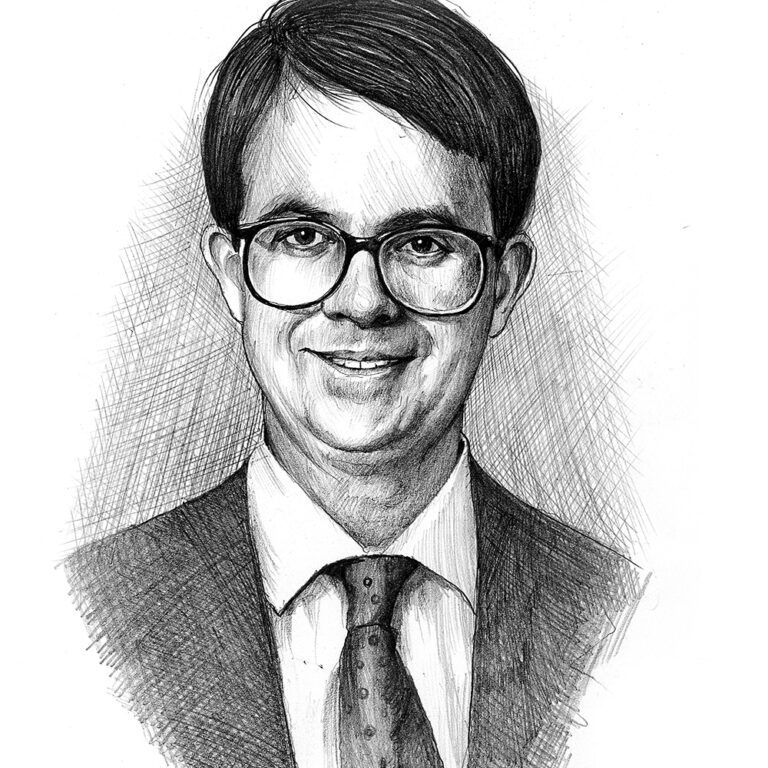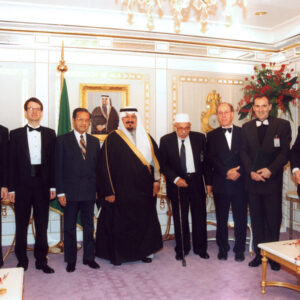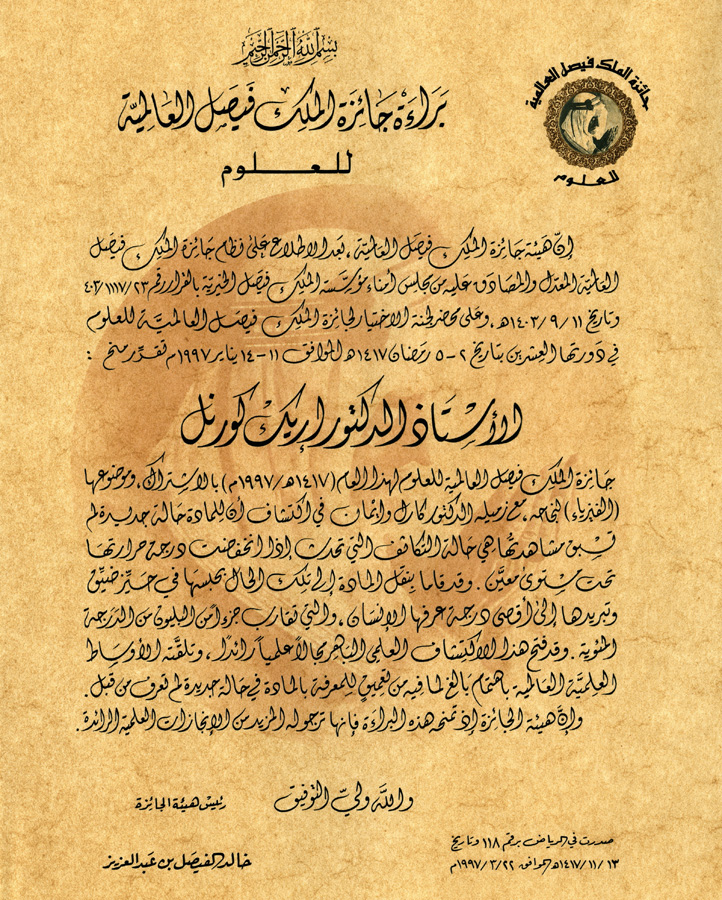

Professor Eric Allin Cornell
King Faisal Prize in Science 1997 Laureate
Topic: "Physics "
What motivates a scientist is the desire to better understand the true nature of things, which is ultimately a spiritual desire; and the ambition to use his understanding to invent, change, and make things better

Eric Cornell received his B.S. in Physics with distinction from Stanford University in 1985 and a Ph.D. in Physics from Massachusetts Institute of Technology in 1990, followed by a postdoctoral fellowship at Rowland Institute at Harvard University. He is currently a Professor at the University of Colorado and a Senior Physicist at the National Institute of Standards and Technology (NIST) in Boulder.
Professor Cornell, jointly with Carl E. Wieman succeeded in achieving a new state of matter known as Bose Einstein Condensate. This is an extreme state of matter that no one else has been able to accomplish, although the quest to achieve it was started more than 70 years ago by Satyendra Bose and Albert Einstein. In 1995, Cornell and Wieman (and independently Wolfgang Kettrle at MIT) were able to achieve the condensate, using very advanced methods of magnetically trapping and cooling dilute gasses of alkali atoms, such as rubidium-87 gas, to a temperature of less than 170 billionths of a degree above the absolute zero (a hypothetical temperature at which matter neither emits or absorbs energy). This discovery, which was preceded by clever innovations of magnetic trapping, not only deepens our understanding of matter in a new state at the lowest temperature ever achieved, but also opens an exciting new field of research into the possible applications of that state. For his work, Cornell received numerous other awards including the Rabi Prize, the U.S. Department of Commerce Gold Medal, the Fritz London Prize in Low Temperature Physics, the Newcomb-Cleveland Prize, the Samuel Wesley Stratton Award, the Carl Zeiss Award, and the Presidential Early Career Award.
Professor Cornell’s scientific contributions appeared in a large number of scientific papers, presentations and invited lectures.
This biography was written in the year the prize was awarded.
- He received many awards and honors including:
- Fellowship of the American Physical Society in 1997.
- Membership of the US National Academy of Sciences in 1997.
- Lorentz Medal in 1998.
- R. W. Wood Prize (OSA) in 1999.
- Benjamin Franklin Medal in Physics in 1999.
- Fellowship of the Optical Society of America in 1999.
- Nobel Prize in Physics in 2001.
- Fellowship of the American Academy of Arts and Sciences in 2005.



